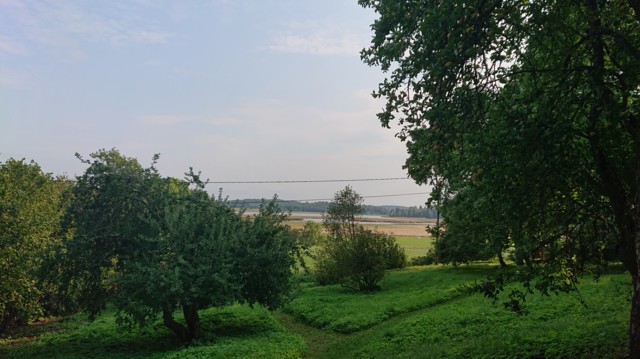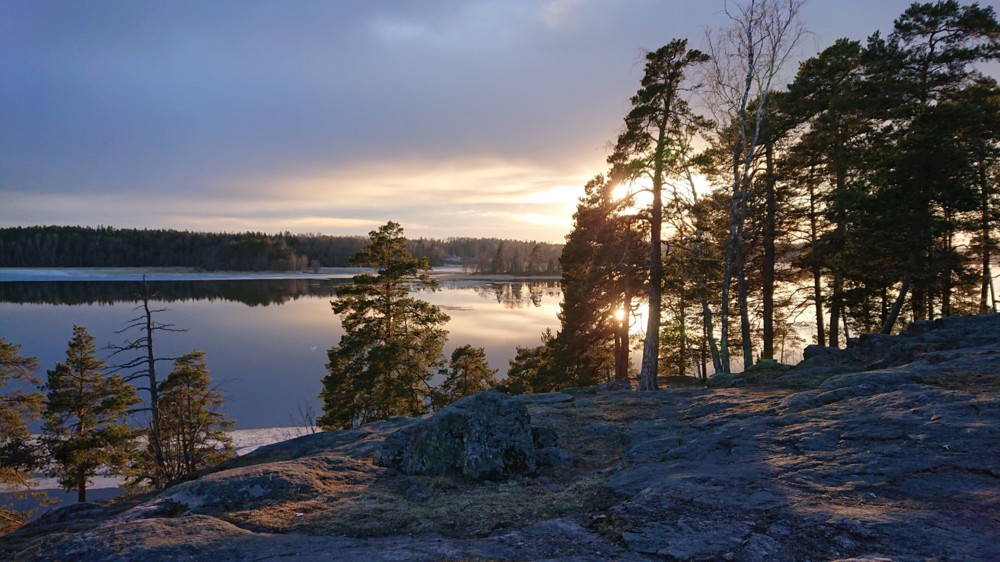
“When you pass from happiness to sadness, and from sadness to happiness, there is a moment of utter silence exactly in the middle—enjoy that too. [...]
We are afraid of the dark side of life; we don’t want to be sad, we don’t want to be in a state of agony. But that is possible only if you are also ready to drop the possibility of being in ecstasy.
Life contains both: it brings great pain, it also brings great pleasure. Pain and pleasure are two sides of the same coin. If you leave one, you have to leave the other too.
This has been one of the most fundamental misunderstandings down the ages, that you can leave pain and save pleasure, that you can avoid hell and have heaven, that you can avoid the negative and can have only the positive. This is a great fallacy.
It is not possible in the very nature of things. The positive and negative are together, inevitably together, indivisibly together. They are two aspects of the same energy. My sannyasins, or those who understand me, have to accept both. [...]
Can’t you see any beauty in sadness? Meditate over it. Next time when you are sad don’t fight with it, don’t waste time in fighting. Accept it, welcome it—let it be a welcome guest. And see deep into it, with love, care. Be a real host! And you will be surprised—you will be surprised beyond your comprehension—that sadness has a few beauties which happiness can never have.
Sadness has depth, and happiness is always shallow. Sadness has tears, and tears go deeper than any laughter can ever go. And sadness has a silence of its own, a melody, which happiness can never have. It will have its own song, more noisy, but not so silent.
I am not saying choose sadness: I am just saying enjoy it too. And when you are happy, enjoy happiness. Swim on the surface too, and sometimes dive deep into the river. It is the same river! On the surface the play of ripples and waves, and the sunrays and the wind—it has its own beauty. And diving deep into the water has its own quality, its own adventure, its own danger.
And don’t become attached to anything. There are people who have become attached to sadness too—psychology knows about them. They are called masochists: they go on creating situations in which they can remain miserable forever. Misery is the only thing that they enjoy, they are afraid of happiness. In misery they are at home.
My own approach is that of Lao Tzu. Life in all possible ways; don’t choose one thing against the other, and don’t try to be in the middle. And don’t try to balance yourself—balance is not something that can be cultivated by you. Balance is something that comes out of the experience of all the dimensions of life.
Balance is something that happens; it is not something that can be BROUGHT. If you bring it it will be false, forced; and if you bring it you will remain tense, you will not be relaxed, because how can a man who is trying to remain balanced, in the middle, be relaxed? He will always be afraid: if he relaxes he may start moving towards the left or towards the right—he is bound to remain uptight. And to be uptight is to miss the whole opportunity, the whole God-given gift.
Don’t be uptight. Don’t live life according to principles. Live life in its totality, drink life in its totality! Yes, sometimes it tastes bitter—so what? That taste of bitterness will make you capable of tasting its sweetness. You will be able to appreciate the sweetness only if you have tasted its bitterness. The man who knows not how to cry will not know how to laugh either.”
OSHO
